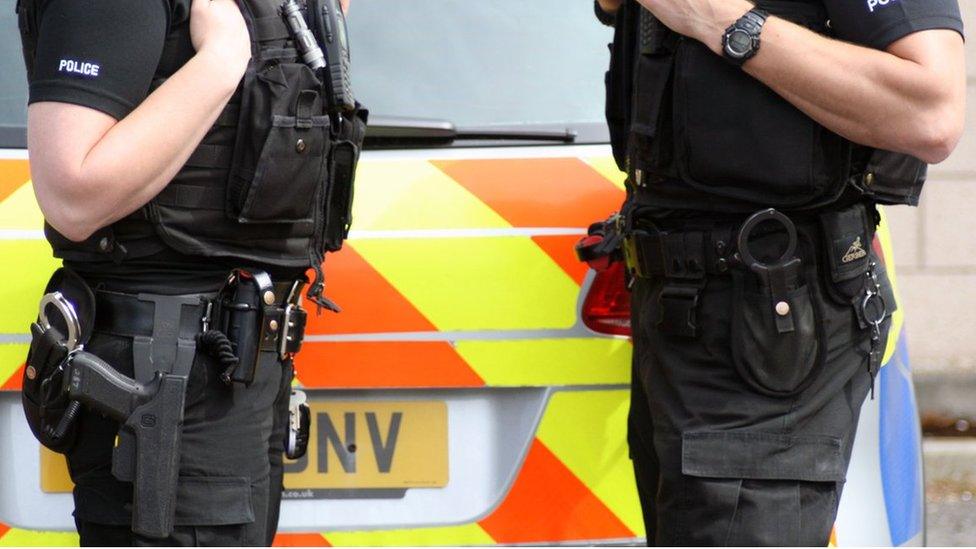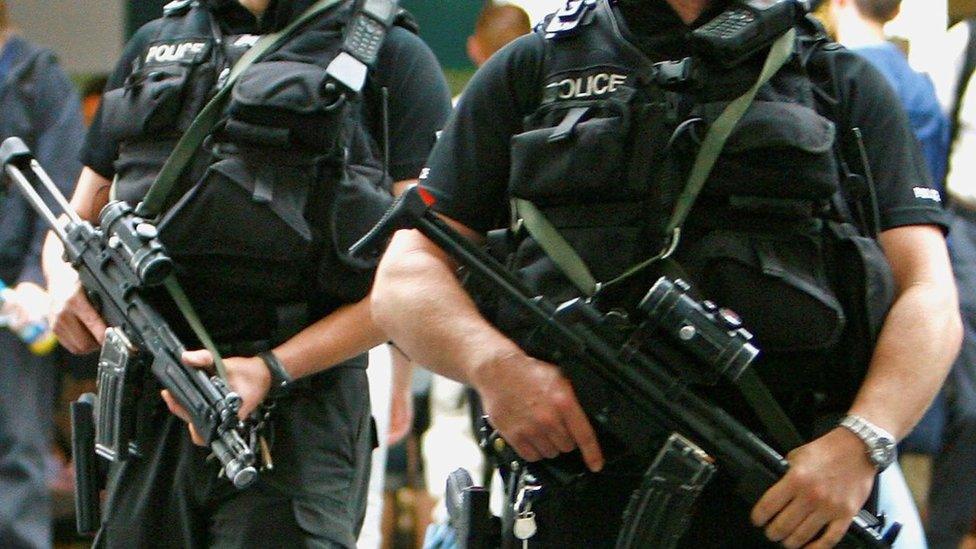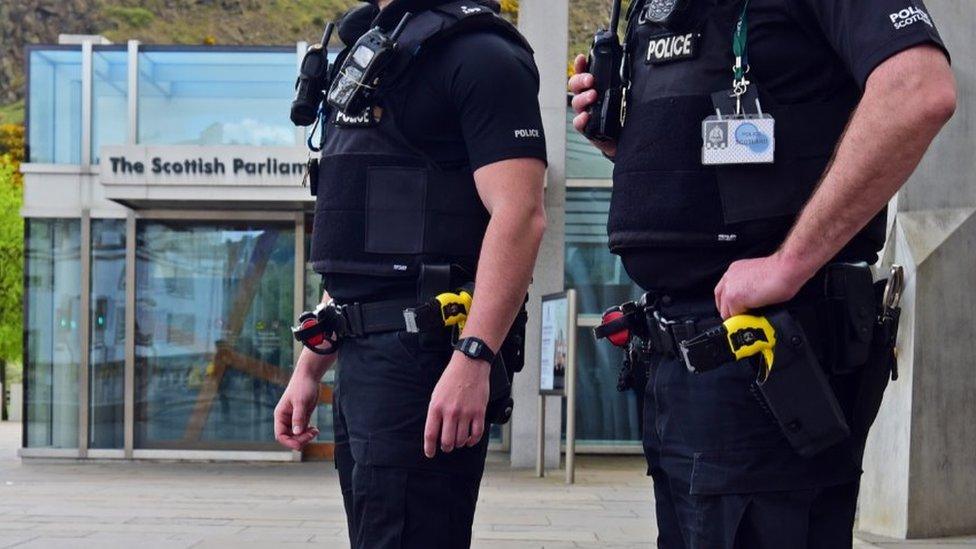'No plans' to give more Scottish police officers guns
- Published

Police Scotland has said it has no plans to arm more officers despite a survey suggesting more than half would like to have a handgun.
The force said it had "no plans to move away from being an unarmed service" with "armed capability".
The Scottish Police Federation (SPF) asked officers to rank what extra equipment they wanted to carry.
Carrying a Taser was the top choice, with 84% of respondents wanting to be equipped with one.
The same percentage of officers said that they would also like a body-worn camera.
About 53% indicated that they wanted to have a handgun - while nearly 47% responded "I don't want this at all".
The SPF, which represents rank-and-file officers, said it had received 1,698 responses to the survey, external - equating to about 10% of police officers.
Almost a quarter (22%) said they had been assaulted while working in the past three months and 40% had been attacked in the previous year.
Knives remained the biggest perceived threat.

SPF chairman David Hamilton told BBC Radio's Good Morning Scotland that police officers felt vulnerable on the streets just now, adding: "Over 22% of officers have been assaulted on duty in the last three months."
He said officers perceived the biggest threats to be from "knives, bats, vehicles and firearms".
"These are all lethal weapons and the appropriate final response is a firearm."
He added that this did not necessarily mean routinely arming officers. There are different options that can be looked at.
For example, he said, in Norway police had handguns in police vehicles which could be deployed when there were "high risk situations" like people with weapons threatening members of the public.
Mr Hamilton added: "What police officers are saying here is this is not sustainable - in terms of the the level of violence they are faced with - and that we need to have a proper discussion to make [officers] safer and give them the protection they deserve."

Police Scotland said it plans to increase the number of Taser-trained officers by 1,500 over the next three years
Assistant Chief Constable Mark Williams, who has specific responsibility for armed policing in Scotland, said he did foresee any change from the current model.
He said: "Policing with the consent of our communities lies at the heart of all we do and there are no plans to move away from being an unarmed service which has an armed capability."
He added that being assaulted "should never be part of the job" and that tackling the "concerning trend of increasing assaults on officers" was a priority.
He continued: "Recently, we have improved our infrastructure to support an enhanced roll-out of Taser and work is under way to uplift the number of Taser-trained officers by 1,500 over the next three years."